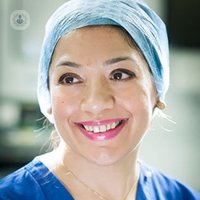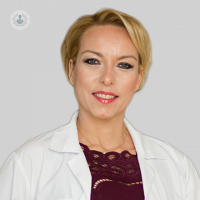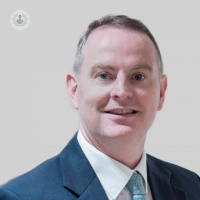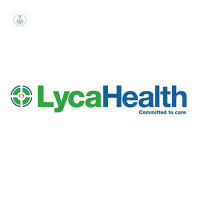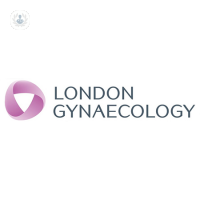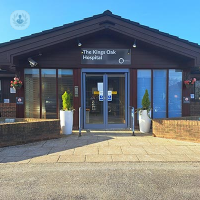Miscarriage
Dr Shazia Malik - Obstetrics & gynaecology
Created on: 04-25-2014
Updated on: 10-13-2023
Edited by: Conor Lynch
What is miscarriage?
Miscarriage, or pregnancy loss, is when an embryo or foetus is naturally lost before being able to independently survive in the first 23 weeks of the gestation period.

What are the main causes of miscarriage?
In some cases, the cause of miscarriage is unclear, and miscarriages can occur for many reasons. Most miscarriages are not affected by the woman herself, and the majority are one-off events. Having a miscarriage does not necessarily mean you will not be able to have a successful pregnancy in the future.
Miscarriages which occur in the first trimester (the first three months of the pregnancy) can be caused by abnormal chromosomes, which simply means that the baby does not develop properly. There may also be a problem with the development of the placenta, which can also lead to miscarriage.
After the first trimester, a miscarriage may occur because of health issues in the mother, or because of an infection which causes the waters to break. Food poisoning and certain medications can also increase the risk of miscarriage.
What are the main symptoms and warning signs of a miscarriage?
The most common sign of miscarriage is vaginal bleeding. The bleeding may occur over several days, and can come in the form of spotting, heavy bleeding, or passing bright red clots. This bleeding can come and go, and because vaginal bleeding can occur lightly during the first trimester of pregnancy, it doesn’t necessarily indicate miscarriage. Speak to your healthcare provider or GP if you experience vaginal bleeding during pregnancy.
You may also feel:
- cramps in your lower abdomen
- the regular symptoms of pregnancy, such as tender breasts, are no longer present
- discharge of fluid or tissue from the vagina
Can miscarriages be prevented?
Most miscarriages cannot be prevented. However there are certain activities or states which can increase the risk of miscarriage. Risk of miscarriage is increased if:
- you smoke, drink, or take drugs while pregnant
- you are overweight
- your caffeine intake is high
- you have diabetes which is not adequately controlled
- you have an overactive or underactive thyroid
- you have severely high blood pressure
- you have kidney disease
- you are a certain age
- Up to 2 in 10 pregnancies end in miscarriage in those between the ages of 35-39
- Over 5 in 10 pregnancies end in miscarriage in those aged over 45
- 1 in 10 pregnancies end in miscarriage in those under 30
What is recovery time like following a miscarriage?
After a miscarriage, it is normal to feel an emotional impact. The miscarriage can affect not just you, but family and friends around you. Support is available for those who have lost a baby in miscarriage. Speak to your GP for advice, and you may be able to find a counselling group or counsellor who can help you and your family through what can be an extremely difficult time. You can access bereavement support services in your area, or you may choose to visit a private qualified therapist or psychologist.
Can stress lead to a miscarriage?
Nor stress nor anxiety are linked to an increased risk of miscarrying, despite many people believing that feelings of stress and anxiousness can increase one's risk of having a miscarriage.
Will I miscarry again?
Recurrent miscarriage is very rare, and tends to only affect roughly one per cent of couples.
What causes recurrent miscarriage?
There are many factors that can increase a couple's chances of suffering from recurrent miscarriage. The main risk factors and potential causes include the following:
- blood clotting disorders
- thyroid disorders
- uterine issues
- genetics
- cervical weakness
- age
How common are miscarriages?
Miscarriages are a very common occurrence. Today, it is estimated that one in every eight pregnancies will end in a miscarriage.
What happens to my baby after a miscarriage?
If one loses their baby any time before a period of 23 weeks, no legal certificate is required, nor any burial or cremation. A loss after 23 weeks is referred to as stillbirth, as it is believed that a baby has a good chance of surviving if they are born alive at or after 23 weeks.
If it is a late miscarriage, a post-mortem will be carried out on your baby only after the parents agree to it.
What will happen if I think I am having a miscarriage?
If a patient believes or suspects that she is suffering from symptoms of a miscarriage, they will, almost always, be referred to a hospital for further, more detailed testing. In the majority of cases, an ultrasound scan can determine whether a patient is having a miscarriage or not.
What happens after a miscarriage is confirmed?
Once a miscarriage has been confirmed and detected, the patient will discuss with their midwife or doctor about the options available in relation to managing the end of the pregnancy. Patients will be offered minor surgery to remove the pregnancy tissue. This tissue will pass out naturally after a period of between one and two weeks.
